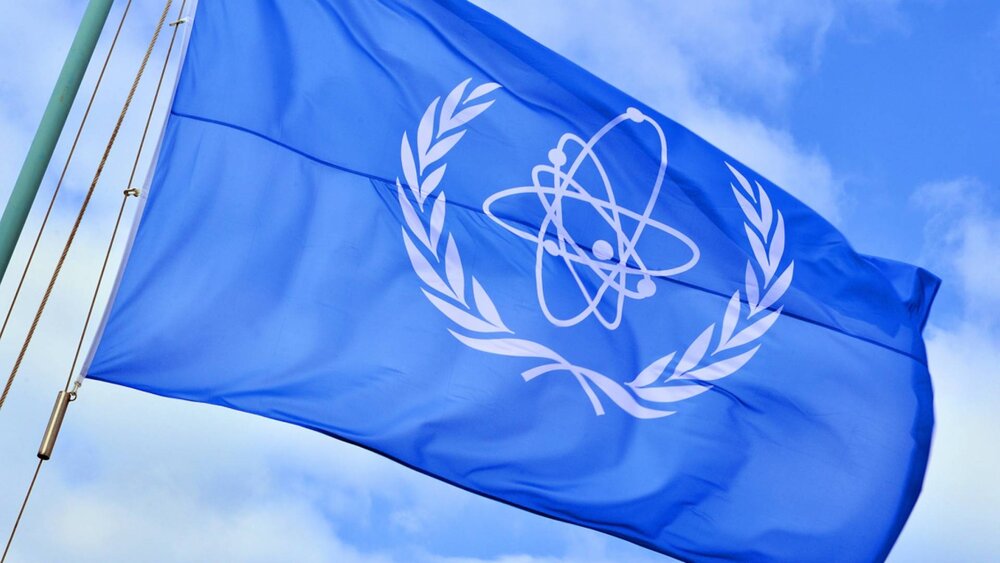IAEA report disregards Iran’s close cooperation: envoy

TEHRAN- A recent assessment by the International Atomic Energy Agency (IAEA) on Iran's stockpile of enriched uranium, according to Iran's permanent representative to the Vienna-based International Organizations, is one-sided and fails to reflect Iran's considerable cooperation with the UN nuclear watchdog.
Mohammad Reza Ghaebi made the remarks on Monday after the IAEA assessed Iran's enriched uranium stockpile had increased to more than 18 times the limit set based on the 2015 nuclear accord signed between Tehran and the 5+1 group.
The 2015 nuclear pact, officially called the Joint Comprehensive Plan of Action (JCPOA), set a maximum of 300 kg (660 pounds) of a certain chemical, which is comparable to 202.8 kg of uranium.
The UN nuclear agency's director-general, Rafael Grossi, also alleged that Iran was continuing to enrich uranium to levels greater than the 3.67 percent limit set in the historic agreement.
It seems that Grossi has ignored that fact that it was Trump’s White House that quit the JCPOA in May 2018 in violation of UN Security Council Resolution 2231 that endorsed the agreement. Apparently, he is also oblivious of the fact that Iran remained fully loyal to its commitments even one year after Trump abandoned the agreement and imposed the harshest sanctions in history against Iran in line wit his maximum pressure campaign against the Islamic Republic.
“The IAEA Director-General's report does not reflect Iran's extensive cooperation with the IAEA,” Ghaebi stated.
“The report concludes exactly what the Director-General presented to the European Parliament before the third round of technical talks, even before the end of the steps set out in the joint statement,” he added.
Iran's representative said the report continues to rely on the Agency's predetermined assumptions and presents its one-sided conclusion accordingly, by ignoring the Iranian side's detailed, reasoned, and technical arguments and unfairly dismissing them as invalid.
“The Islamic Republic of Iran considers this approach unconstructive and destructive to the close relations and ongoing cooperation between Iran and the IAEA,” Ghaebi underlined. “And believes that the IAEA should realize the ruinous consequences of publishing such one-sided reports, which could provide the necessary excuse for opponents of Iran-IAEA relations as well as the sworn critics of the revival of the JCPOA.”
In a separate report released on Monday, the IAEA claimed that it still had unanswered issues about previously undeclared nuclear material at three Iranian locations.
Iran has presented the explanation of the "act of sabotage by a third party to contaminate" the locations, according to the report, but no proof has been provided to back it up.
Ghaebi said the Islamic Republic's entire peaceful nuclear activities have been carried out within the framework of the Non-Proliferation Treaty (NPT) and in accordance with legal compensatory measures in the law adopted by the Iranian parliament following the suspension of Iran's nuclear obligations due to non-fulfillment of obligations by other parties, referring to the IAEA's second report.
“Therefore, the Agency will not gain access to the memory information of its deployed cameras and other information in this regard until an agreement is reached for the revival of the JCPOA,” Ghaebi underscored.
The Islamic Republic has repeatedly warned IAEA officials not to reveal detailed information on the country's nuclear activities, citing the importance of the principle of confidentiality in IAEA regulations, according to the senior diplomat, but the issue has not received serious attention from the IAEA.
The report comes as talks in Vienna, Austria, to resurrect the historic 2015 nuclear deal between Iran and global powers are still deadlocked.
Mikhail Ulyanov, Russia's senior negotiator at the Vienna negotiations, responded to the UN agency's reports being leaked to the media, saying that the measure would lead to a lot of speculation before and during the IAEA Board of Governors meeting next week.
“As always, the IAEA Director General’s reports on Iran were immediately leaked to mass media today. We can expect a lot of speculations in the days to come and heated debates in the IAEA Board of Governors next week,” Ulyanov wrote.
Since April 2021, many rounds of negotiations between Iran and the P4+1 group of countries — the United Kingdom, France, Germany, China, and Russia – have been conducted in the Austrian capital to re-enter the pact. American diplomats are not allowed to participate in the negotiations since the U.S. illegally withdrew from the agreement.
The U.S. has refused to repair previous wrongs, including removing Iran's Islamic Revolution Guards Corps (IRGC) off its list of foreign terrorist organizations as well as putting talks on pause since March.
Iran asserts that the designation of the IRGC in 2019 was part of former President Donald Trump's so-called "maximum pressure" campaign against Iran, and that it must be overturned immediately.
The Joe Biden administration disagrees, despite admitting several times that Trump's maximum pressure policy has been a disaster. It has kept the IRGC designation and economic penalties as leverage in negotiations.
Leave a Comment